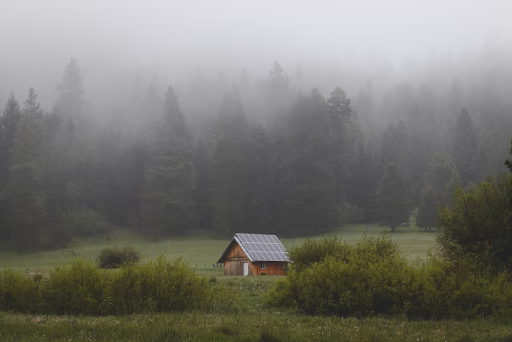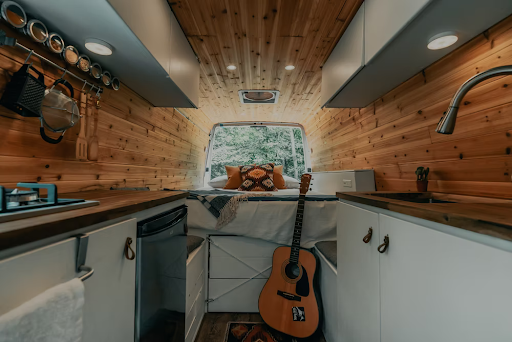You might be wondering that living off-grid is pretty easy, right? Just pick a place, build a cabin, raise farm animals, grow your vegetables, and you’re all set. However, that might not be the case at all. Living off-grid is a major lifestyle transition that should be planned in detail and step-by-step so that you don’t miss out on anything important. Today, we will be sharing with you the six most important things you should know if you are planning to adopt an off-the-grid lifestyle.

-
Choosing a Terrain
Picking a location to start your off-grid life is one of the most important decisions that you have to make. It’s the type of terrain that will influence how you spend your time. Remote areas are worth considering as these places maintain their natural beauty and truly let you experience the bliss of off-grid living. Other options include rural areas where you can find relatively cheap land with minimum taxes. However, the final decision will depend on your set goals and the path you are willing to take.
-
Water Management
Having a sustainable water source is a necessary element when planning to live off the grid. You won’t have access to groundwater, so make sure the area you select to build your shelter should have a freshwater source nearby. However, if there is no availability from a nearby water source, try other ways of collecting water. Nowadays, we have sustainable water collection systems that collect rainwater and store it for later use. Besides selecting an area with a nearby water source, do ensure that the available water is drinkable. If the availability of drinkable water is an issue, learn how to purify water naturally and boil it before you drink.
-
Building a Shelter
Humans need adequate shelter to survive, especially when planning to live off the grid. Depending on your lifestyle and the budget you are willing to spend, there are a variety of shelters for eco-friendly living that you can build to fulfill your needs. Some of the popular ones include wooden cabins, cob houses, huts, vurts, and tents. Before moving out, do your homework to figure out which type of shelter would suffice your requirements and make an action plan accordingly.
-
Grow Your Food
After you have sorted out the basic requirements, use the fertile land to grow your vegetables that will be used to cook food. So plan on the types of vegetable and fruit seeds you would be planting in your garden. Furthermore, you can also learn about the local herbs, plants, and fruits of the area so that you could easily differentiate the edible ones.
-
Power Management
Calculate the amount of electrical energy you use every day and make appropriate arrangements as you will be generating electrical energy on your own using eco-friendly methods. There are a couple of options that include solar and wind-powered electricity generators, which can be attached to storage batteries. Solar-powered systems can produce electricity when there is sufficient sunlight, whereas wind-powered systems rely on wind speed. So, consider choosing one according to the environment. Some experts even suggest taking solar and wind-powered systems with you, as both can work in sync with each other to provide uninterrupted energy.
Furthermore, a sophisticated electricity storage system is also necessary to store energy for later use. We can find a plethora of options out there in the market, so do your research as these systems can cost a lot of money to install. The best way is to consider your energy consumption requirements and then pick a battery storage system that will fulfill your needs.
-
Waste Disposal
Taking care of your health is crucial as you won’t have quick access to medical assistance services, especially in remote areas. Proper waste disposal strategies can be used to keep the premises free of disease-causing germs. You have to comply with federal and state guidelines for waste disposal, so make sure you understand the laws and abide by them. Making a septic system would be great as it makes sure that no contamination occurs.

Living an off-the-grid life undoubtedly gives peace of mind, improves self-awareness, and lets you enjoy the serenity of nature. However, it comes with its challenges that can be achieved by planning and having the right mindset. If you don’t spend time to lay out an action plan and fail to develop a healthy approach towards a homesteading lifestyle, living off-grid might become difficult over time. The best way is to give time to research and weigh in on every single option for the best possible outcomes.
